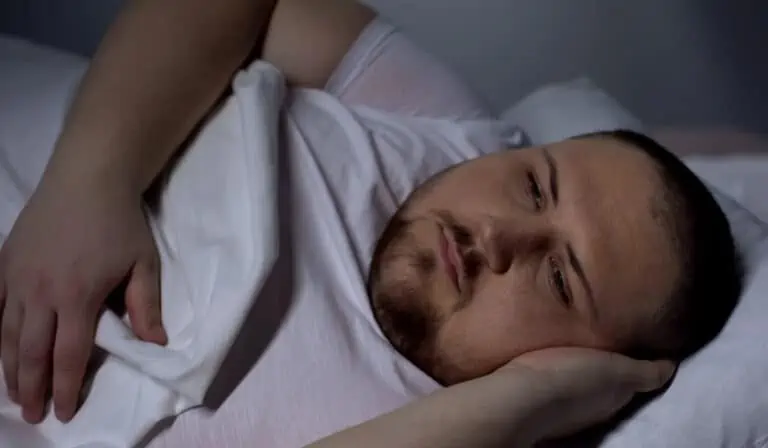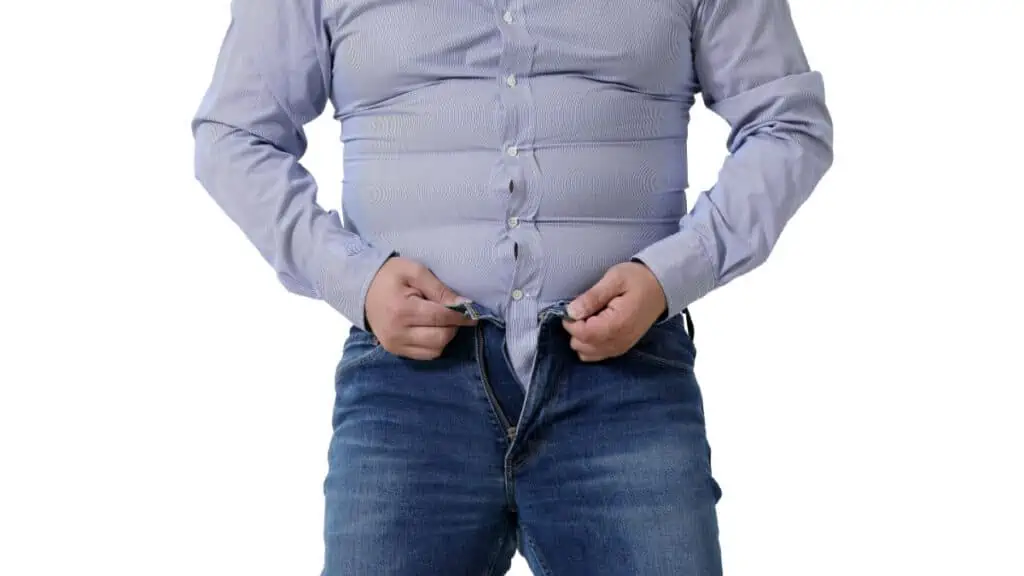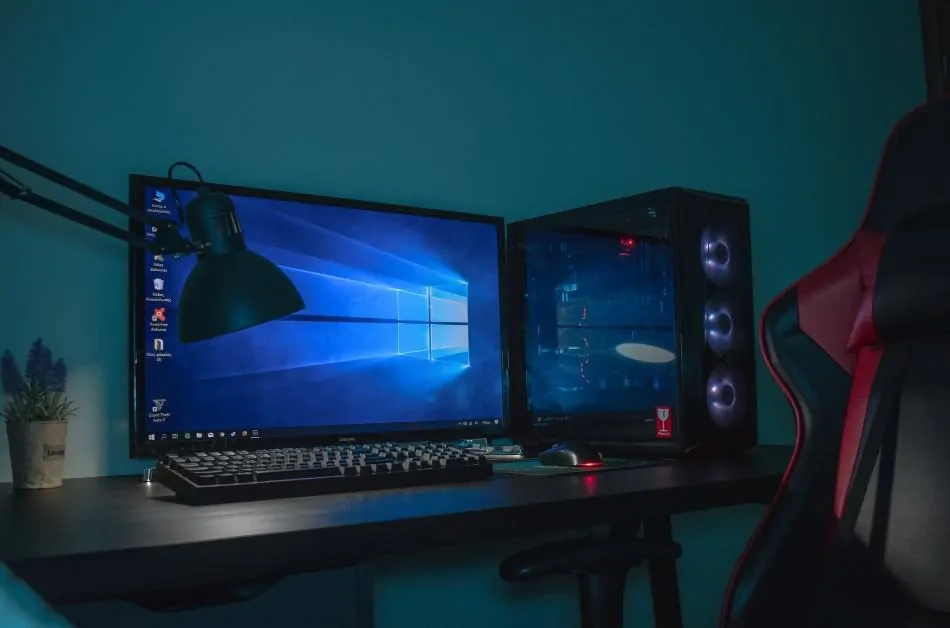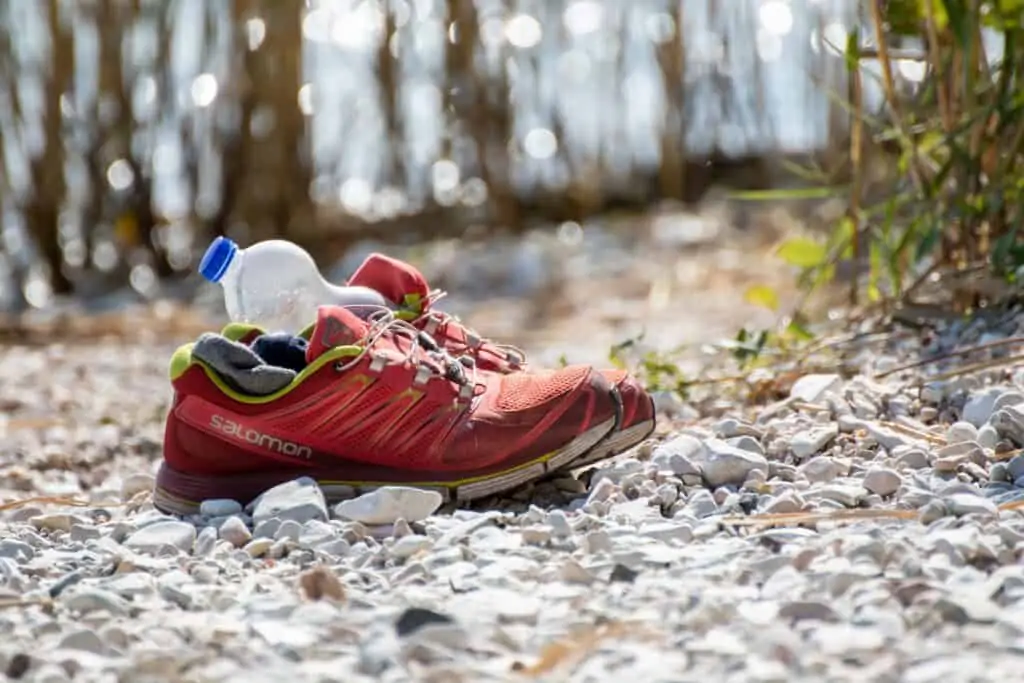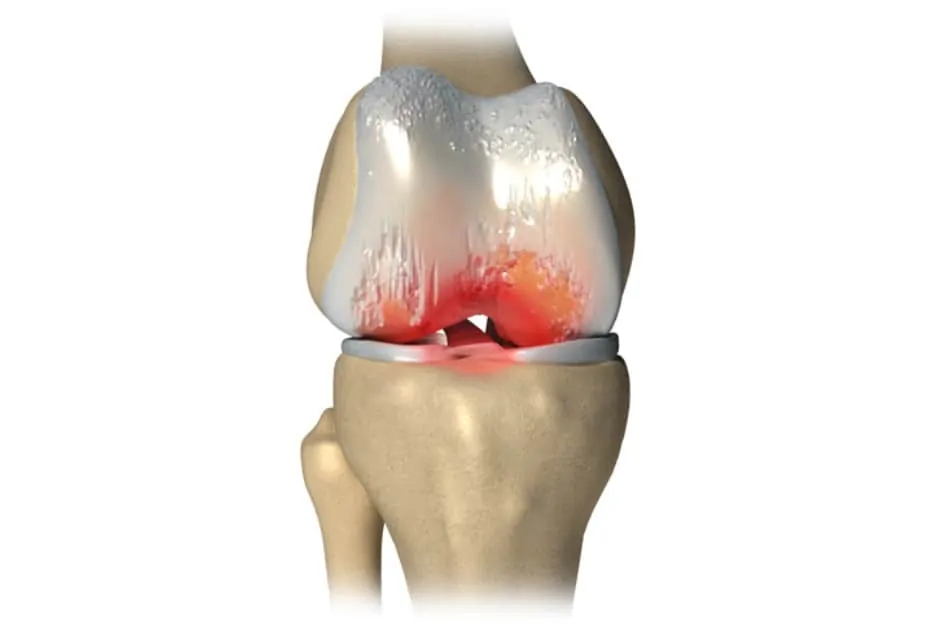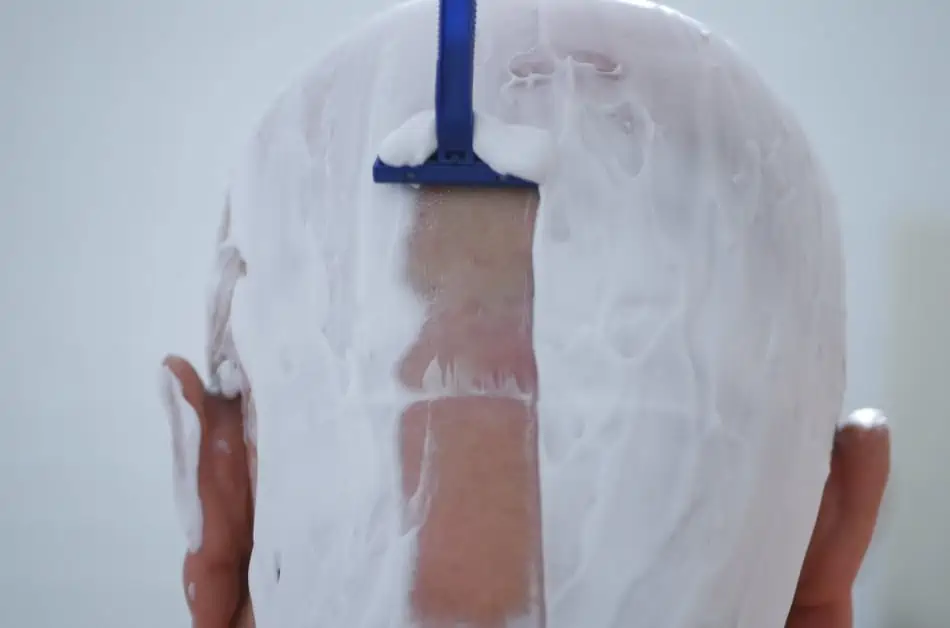If you have trouble sleeping, part of it might be your weight. However, that doesn’t mean you can’t sleep well unless you look like a fitness model. There are plenty of ways overweight people can sleep better, and the crucial ones are worth remembering.
The best sleeping tips for obese people are to sleep on one’s side, avoid sugar before bed, get sunlight during the day and make one’s room completely dark at night. You can add melatonin supplements every now and then to adjust one’s sleep cycle and cut caffeine intake in the evening.
In this article, you will discover some of the best ways to initiate, induce, and improve your sleep.
While the post contains explanations and best practices for each tactic, here are some of the highlights we cover in it:
- Have no sugar before bed
- Avoid caffeine in the evening
- Sleep on your side
- Don’t stay in your bed when you’re not sleeping
- Get rid of extra light sources at night
Now, it’s worth nothing before we start that most of these are just good general advice for better sleep. However, when I first started gaining significant weight I just assumed that I didn’t sleep well because I was fat.
Being fat was just my scapegoat.
It turns out that being overweight had just brought many problems to light and, by correcting a few of these, I was able to drastically improve my sleep.
11. Best Sleeping Tips For Obese People
1. Cut Sugar 4 Hours Before Bedtime
You have to minimize sugary food 4 hours before sleeping to avoid a sugar roller coaster and insulin spikes that can keep you from getting the deep sleep you need.
There is significant research on the subject, and the Guardian has even published a piece on it.
But the bottom line is this: sugar is bad for your sleep.
Since sugar spikes last 40 minutes and crashes can last up to 4 hours, it is best not to give in to your cravings within the final four hours of your day.
You can use Splenda, which has zero calories and sugar in any desserts or drinks you have before bed so that the sugar content that would otherwise disturb your sleep is absent from the final hours of your daily diet.
Sugar turned out to be one of my biggest problems with sleep. If I ate anything sugary before bed I would wake up ravenous in the middle of the night and end up looking for snacks. If I went to bed in a fasted state or after a protein-rich meal I would typically make it through that night without eating.
2. Go Out in the Sun

During the day, you should get more sunlight. Even though it might seem unrelated to sleep, receiving more daylight can help you sleep better at night. This is because your pineal gland can anchor your waking state to light and cause melatonin release when it is dark (i.e., nighttime). If you stay in your office or home all day and sleep in similar lighting, your melatonin cycle can be off, which can cause sleep issues.
Melatonin release is cyclical (this is why jetlag takes a few days to wear off). Aside from getting exposed to the proper sunlight once a day, you can also force an immediate melatonin cycle adjustment by getting an external dose of melatonin at night.
The next night, your body will naturally release melatonin at that time if you don’t mess with the lighting.
If you’re wondering what kind of of melatonin to start off with, look for a soluble melatonin supplement that you can drip under your tongue (as it will absorb faster that way).
Unlike other sleep drugs, melatonin supplements aid the body’s natural function, and their subtraction from your diet doesn’t result in withdrawals. Still, it is advisable to take melatonin only to adjust your sleep cycle and not to initiate it every time.
3. Eliminate Screentime Before Bed
Ditching screens can be one of the hardest things an obese person has to do. Unlike figure-typicals, obese individuals don’t have the privilege of high mobility that can help them enjoy outdoor activities and sports. While they aren’t obligate recluses, they prefer to get most of their entertainment through the screen.
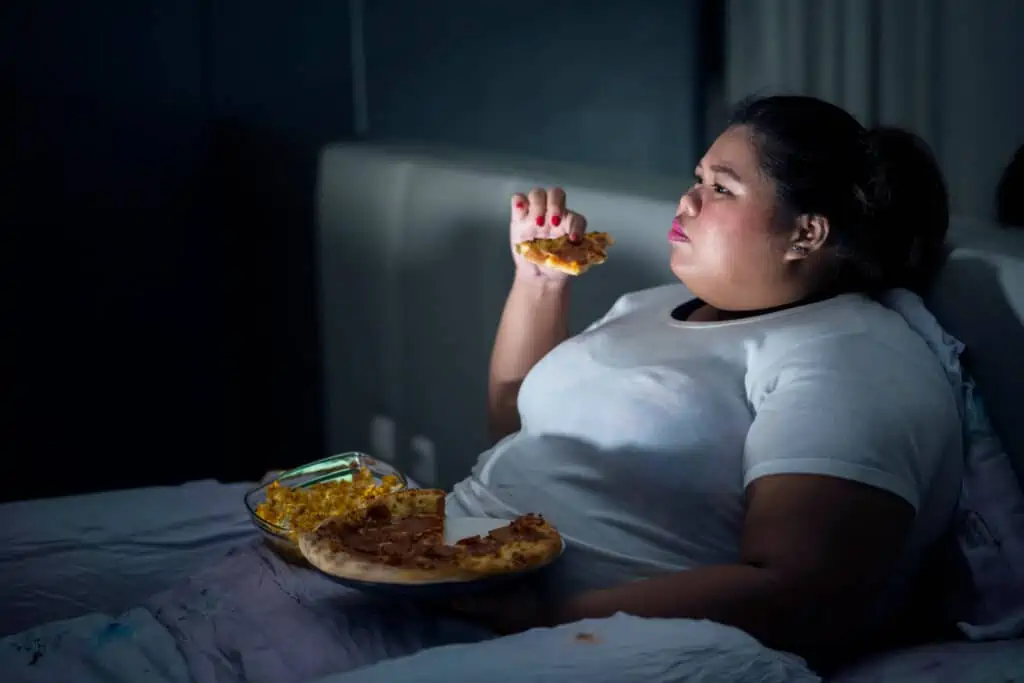
Screentime before bed, unfortunately, is the number one cause of sleep problems in 2022. It bombards the eyes with blue light that can prevent melatonin release. You can use blue light filtering glasses that are designed and marketed for pre-sleep screentime.
Different people report different success rates with these. For example, 85% of Swannies’ (the main seller of blue-light glasses) customers are satisfied enough to give these shades 5 out of 5 stars but there are some serious negative reviews…that’s probably because blue light filters don’t work for everyone.
A sizeable number of people can see some improvement in their sleep after adopting blue light blocking mechanisms like a screen cover or a shade. But to amp it up to the maximum, you need to eliminate the backlight altogether.
Backlight-driven screen systems bombard your eyes with direct photon emissions at all times. This can reduce the rate at which you blink and even cause eye strain. An e-ink screen device can be better for your nighttime reading or scrolling activity.
Here is how you can enjoy social media or web browsing before bed without interrupting your sleep cycle:
- Get an e-ink reader like a Kindle
- Use its web browser to log into your social media accounts, favorite forum profiles, etc.
- Switch away from your phone 2 hours before bed and use the e-ink device.
The advantage of using a pair of anti-glare specs is that they don’t require as much adjustment as an entirely different device. Anything that takes too much effort to adjust usually isn’t adopted. So there’s always a risk of buying an e-reader and never using it. But the greatest advantage of a Kindle is that it eliminates all glare.
Overall, whichever you’re likely to use more is the best.
4. Give Your System 6 Hours Without Caffeine
Caffeine is famous for helping people get out of their drowsy state, especially in the morning. It has become synonymous with coffee because it is the main reason most people get accustomed to the hard-to-acquire taste of coffee. But if you are perpetually consuming coffee or energy drinks, you start sacrificing your ability to sleep.
You don’t have to drink coffee before bed for caffeine to mess with your sleep cycle; you can have it in the evening and retain it in your system while you’re getting to bed. The peak of a caffeine high doesn’t last that long, but residual effects of caffeine remain for 6 hours.
It is best to cut out all caffeine at 5 pm if not at 4 pm. And if you sleep at midnight, you can afford to take the curfew start a little further. All in all, there should be no caffeine consumption within six hours of bedtime.
And if you drink coffee for its taste, you can replace your evening cup with decaf coffee or switch to Pero (a coffee substitue) or herbal tea.
5. Turn up the Air Conditioner
Did you know that when a person sleeps, his body’s core temperature drops one to two degrees? This slight drop is usually manageable for the body’s physiological temperature regulation.
However, if you’re in a hot environment and don’t use proper air conditioning, the heat can make it difficult or your body to reach the ideal temperature to put you to sleep.
Turning up the air conditioner can help obese people sleep better because it offsets the disadvantage posed by the thick fat layer surrounding their core muscles.
6. Avoid Stress – Use Anti-stress Supplements
Anti-stress supplements can help keep your mind from wandering in negative ways. If you can recall being unable to sleep the night before Christmas or a school trip, you know what it is like when excitement keeps you from drifting into the night.
Stress occupies the mind just as completely and can prevent you from sleeping as well. More importantly, the experience isn’t nearly as pleasant as staying up from excitement.
Magnesium reduces stress and is not addictive like some stress-management medication.
Taking one tablet a day can reduce the overall negative thought patterns and nighttime stress as well.
7. Make Your Bedroom Completely Dark
Darkness induces better sleep, and the brighter the area in which you sleep, the less deep your sleep is. Even if you force yourself to sleep with the lights on, you throw off your melatonin cycle by confusing your system.
There’s a reason why even nocturnal individuals sleep with the lights shut. Different people have different degrees of tolerance for light at night. If you have trouble sleeping, turn off any light in your bedroom.
Pitch black darkness can help you get into a deeper sleep state.
8. Sleep on Your Side
If you are obese, chances are you sleep on your belly. This is because sleeping with your back on the mattress can cause breathing problems and even result in snoring. Moreover, a bulk of your belly fat can weigh on your internal organs and create a suffocating effect.
Even though you are able to breathe, you might feel like you are drowning. Turning off all lights can further amplify this. The solution that more obese people arrive at is to sleep on one’s belly.
However, just because it’s common does not make it the best.
The best overall sleeping position for obese people is side-sleeping. Back-sleeping results in snoring and breathing issues while stomach sleeping puts unneeded pressure on the internal organs.
For most people, sleeping on one’s side is proven to have the least pressure on one’s internal organs and the lowest breathing burden of all sleeping positions for fat people. This might not be your habit and will require getting used to. But if you can get accustomed to sleeping on your side, you will sleep better.
If you find that sleeping on your side is painful for your arm or shoulders (which is way for me) then pick up a soft mattress topper to give some extra cushion.
9. Keep Work and Entertainment Out of Bed
Another way to improve your sleep is to stop watching TV, gaming, or eating on your bed. If you want to take this a step further, you can keep your bedroom off-limits for anything unrelated to sleep, thus creating a “psychological anchor”.
Once sleep is anchored to the bedroom, you’ll quickly get sleepy by simply entering your bedroom. However, keeping your whole bedroom off-limits might not be feasible. But staying off the bed when you work or watch TV is the least you can do for a good night’s sleep.
10. Remove Electronic Devices From Your Bedroom
The electromagnetic field (EMF) of most gadgets can interfere with our sleep. This seems inconceivable to the average individual but is confirmed by various studies. A 1999 study came to a pretty airtight conclusion regarding EMF’s effect on human sleep.
And even though the study came out over 20 years ago, no academic work since has been able to credibly dispute it. Every iteration of the study or adjacent paper confirms this further.
Even if you cannot get rid of your bedroom’s wiring and fans, you can remove your mobile phone and laptop from the environment. These devices have very large EMFs. This also serves to discourage nighttime social media use.
The alternative is to apply EMF neutralizing stickers to the back of your cellphone. But scientists have already disputed their effectiveness and have stated that EMF protection stickers do not help at all.
11. Monitor Your Pre-Bed Diet
This tip has multiple tips nested within it. Firstly, you must draw a strict 90-minute food curfew before bed. This means you should not eat anything (no matter how healthy) before bed.
Even though a heavy meal can result in digestive drowsiness, it can also result in midnight hunger.
Even 90 minutes before bed, you have to watch what you eat. The best thing to eat is a high-protein snack. Protein can help your body get nutrition without kicking up a sugar and insulin see-saw.
Bonus Tip – Wear Socks To Bed
Sleeping socks (or any socks) can keep your feet warm. The human body’s extremities are almost always much colder than its core. However, this contrast is the most obvious to fat people who can sometimes remain unable to sleep because their feet are too cold. Wearing socks can help them feel snug and cozy, which can aid sleep induction.
TL;DR: Sleeping Tips for Obese People
Sleep is a key part of the human experience. It should be pleasant and refreshing, not hard and frustrating. Like everything else in life, sleeping is harder when you’re fat.
Imagine that we’ve evolved for thousands of years and we still struggle to do something that every animal has mastered — sleep.
However, the above tips should get you well on your way to better sleep which will, in turn, lead to better days which will, in turn, lead to better sleep. You get the picture.
So, if you need something to try tonight, cut out some sugar and caffeine, leave your electronics, and sleep on your side. Good luck!

